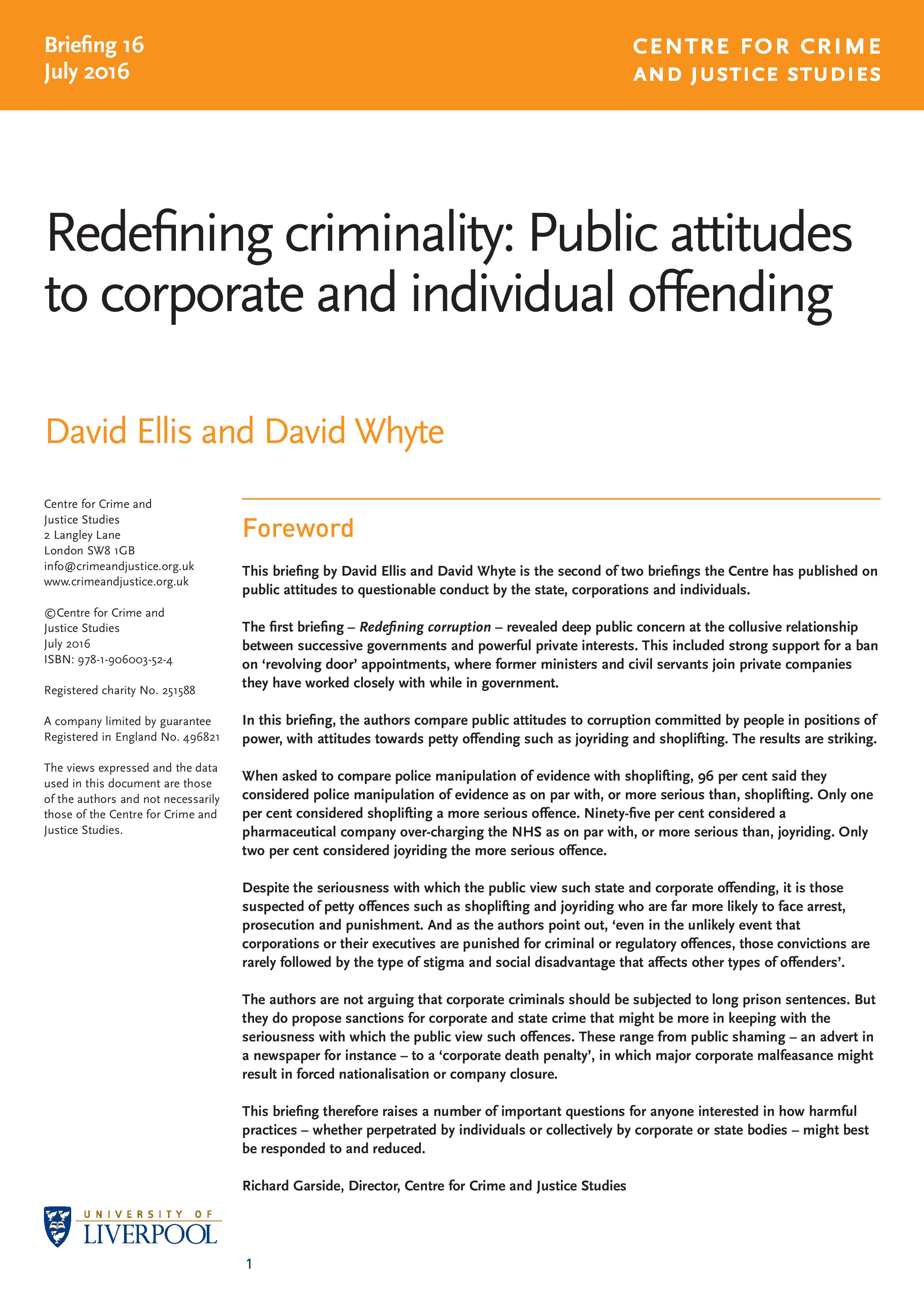In this Briefing David Ellis and David Whyte compare public attitudes to corruption committed by people in positions of power, with attitudes towards petty offending such as joyriding and shoplifting.
The results are striking. When asked to compare police manipulation of evidence with shoplifting, 96 per cent said they considered police manipulation of evidence as on par with, or more serious than, shoplifting.
It is the companion briefing to Redefining corruption, which revealed deep public concern at the collusive relationship between successive governments and powerful private interests. This included strong support for a ban on ‘revolving door’ appointments, where former ministers and civil servants join private companies they have worked closely with while in government.
Only one per cent considered shoplifting a more serious offence. Ninety-five per cent considered a pharmaceutical company over-charging the NHS as on par with, or more serious than, joyriding. Only two per cent considered joyriding the more serious offence.
Despite the seriousness with which the public view such state and corporate offending, it is those suspected of petty offences such as shoplifting and joyriding who are far more likely to face arrest, prosecution and punishment.
As the authors point out, ‘even in the unlikely event that corporations or their executives are punished for criminal or regulatory offences, those convictions are rarely followed by the type of stigma and social disadvantage that affects other types of offenders’.
The authors are not arguing that corporate criminals should be subjected to long prison sentences. But they do propose sanctions for corporate and state crime that might be more in keeping with the seriousness with which the public view such offences. These range from public shaming – an advert in a newspaper for instance – to a ‘corporate death penalty’, in which major corporate malfeasance might result in forced nationalisation or company closure.
This briefing therefore raises a number of important questions for anyone interested in how harmful practices – whether perpetrated by individuals or collectively by corporate or state bodies – might best be responded to and reduced.
